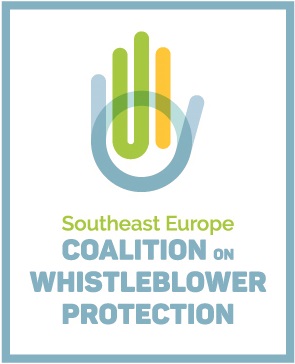There is no financial support for whistleblowers when they have no income or get fired. Condemned by the institutions and without legal aid, they fight the system as fighting a bear
Author: Goran Lefkov
Whistleblowers are the enemy of the state. This is the impression of the people who, for the sake of the state and the citizens, have become whistleblowers, just because they cannot stand the injustices and irregularities in running the institutions in which they work. Left alone, without any help from the state, the institution where they work, the institutions that should protect them, but they do not do that, literally set for shooting like clay pigeons.
The idea for whistleblowers was that they should only point out where there are illegal actions and thus activate the law enforcement institutions and clear up the situation.
However, unfortunately, things are not set that way. The moment a person raises the alarm, instead of the institutions in charge of clearing up the crime doing it, they enter a fight against the person who has reported the case.
Golgotha starts from the basic level of organization of the whistleblowing system in the country. According to the Law on Whistleblowers, we have two forms of reporting. Internal and external. For whistleblowers and those who are familiar with the conditions, internal whistleblowing is very debatable. Each manager appoints reliable people as authorized persons for receiving reports from whistleblowers. With the system set up in this way, the probability that the authorized person will report the whistleblower to the manager is very high.
With the system set up in this way, the whistleblower is distrusted in internal whistleblowing, and thus the trust in the system is reduced, which brings great damage to the fight against corruption.
The small number of reports from whistleblowers lies exactly in this problem. The State Commission for Prevention of Corruption is an institution in charge of external reporting. In 2019, 19 cases were reported, while in 2020 only 5. The whistleblowers we talked to point out the internal way of reporting as problematic and the reason why there is no internal reporting.
All whistleblowers we talked to emphasize that the persons authorized to receive reports are a failed institute in the law and they should be excluded in the amendments to the law on whistleblowers. The new law is being worked on, but it has not been presented to the institutions to be voted yet.
This approach of the state to the system of whistleblowers does great harm to the citizens. This law was to be one of the most powerful tools of state institutions in the fight against corruption. They provide the control services with complete information on where the irregularity or corruption and crime have occurred, and they do not have to go through a lot of documents to record the crime.
Second positive feature of this law is that the institutions and directors themselves, if the law and the system of whistleblowers work, know that when they commit a crime, someone is watching it closely and that they will be reported and will be held accountable one day. It has the function of so-called illuminating the darkness in which corruption is born.
The damages of corruption for Macedonian conditions are estimated at hundreds of millions of euros every year. A few years ago, some information came out that Nikola Gruevski’s system had extracted about 6 billion euros from corrupt activities in 10 years. That has cost every Macedonian about 4,000 euros or 16,000 euros per family, which is too much.
This law and this system were supposed to fight that corruption, unfortunately we have not had any significant results from it yet.





